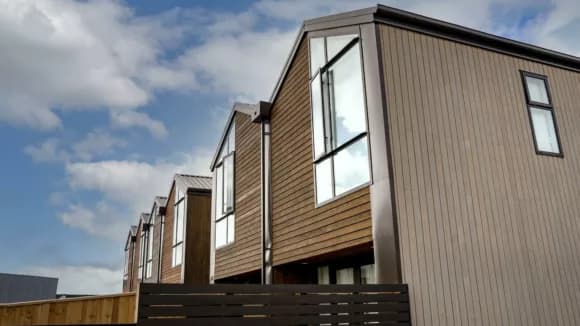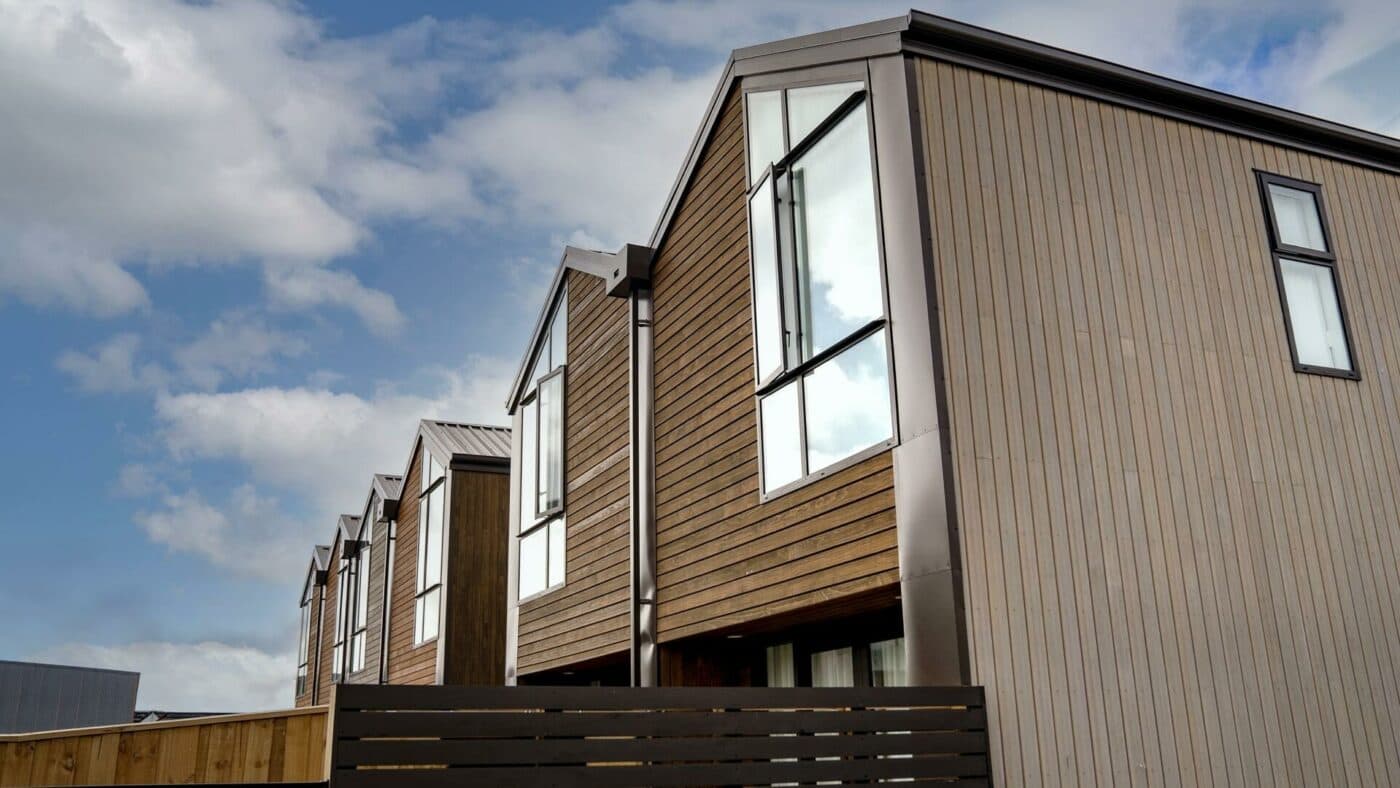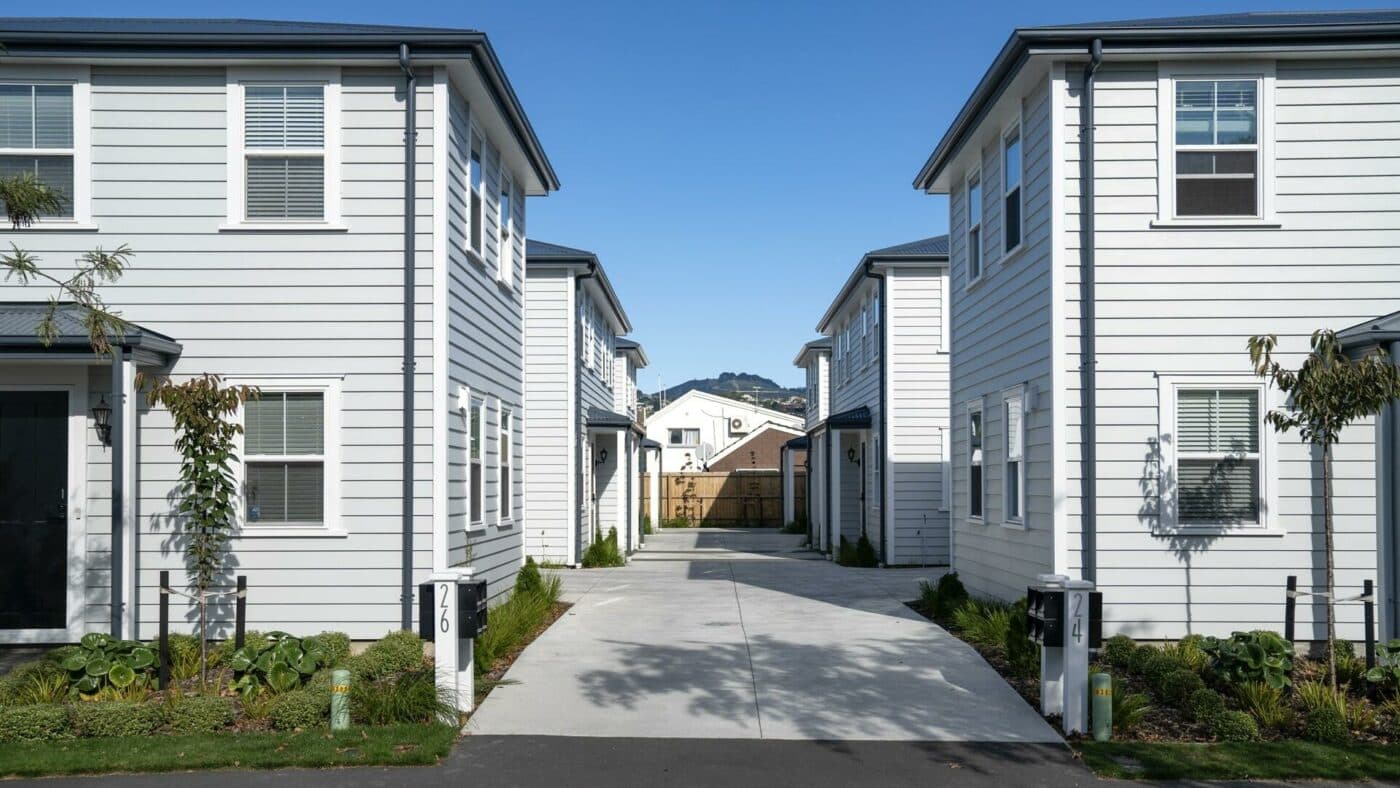
Property Investment
What is Vacancy Protection?
What is Vacancy Protection? Learn how this Opes Property Management programme reduces vacancy risk for Auckland New Build investors.
Property Investment
5 min read

Author: Laine Moger
Journalist and Property Educator, holds a Bachelor of Communication (Honours) from Massey University.
Reviewed by: Ed McKnight
Resident Economist, with a GradDipEcon and over five years at Opes Partners, is a trusted contributor to NZ Property Investor, Informed Investor, Stuff, Business Desk, and OneRoof.
A body corporate comes into play when you and your neighbour share a common area.
For example, when you buy an apartment, you share land and an entire building. Because there are shared areas, you need to have rules. And you need to have a way to maintain those shared spaces … it can get hairy otherwise.
This is why you will often be automatically signed up to a body corporate when you buy an apartment.
In this article, you’ll learn what a body corporate is, how much it costs, and what it covers.
Body corporates are a legal entity; they’re also known as Strata.
Think of a body corporate like a membership group. When you buy an apartment, you are automatically part of that membership.
Apartments are usually built on a shared piece of land. Everyone who owns an apartment in the building also owns part of the land, but they also have shared areas like gardens, lobbies and car parks.
These areas need to be maintained, so there are also shared costs. This includes maintenance, landscaping and insurance.
So you need a way for all the apartment owners to share these costs and manage the building. That’s what a body corporate does. That membership group (body corporate) then has a committee to make decisions, and that’s called a body corporate committee.

A body corporate is a legal requirement of the Unit Titles Act 2010, so any piece of land that is a unit title automatically has a body corporate.
This happens automatically when the developer submits his or her plans for a New Build. It is not something you can opt out of, so all the owners within the building make up the body corporate.
The first job of a body corporate is to maintain common areas. Things like car parks, lobbies, elevators, pools and gardens. Anything that is shared among all the units in a development.
All the owners in an apartment building pay money each year (an annual levy), which pays for this upkeep.
The body corporate will also set rules for the people who live in the apartments. These are called “operational” rules. (More on this below). Without one, there is a danger that certain aspects fall into disrepair. This makes the building unsafe, and your investment suffers.
Secure a comfortable retirement with 3 easy steps
Book your free sessionAll members of the body corporate must follow the operational rules. These are set by the body corporate and usually cover things like:
The body corporate can add or change the operational rules to suit the building. So, they also might state whether you can paint the exterior of the building, or whether or not you can hang washing from windows.
All unit title properties have a body corporate, but not all properties with shared areas are unit titles.
For example, most townhouses have a fee simple title, but they still have shared areas. That’s where they often have a residents’ association instead.
Resident associations are similar to a Body Corporate. While they may seem to be interchangeable, there is an important difference. Body corporates have been around forever, but residents’ associations are a newish concept, created for modern townhouse developments.
The primary difference is the ownership of the land underneath the building. A body corporate will oversee land that is jointly owned by many different owners. A residents’ association will be set up for individual owners of the land, living side-by-side.
For example, a multi-unit apartment building will have a body corporate, whereas a row of adjoining townhouses will have a residents’ association. That’s because if you own a townhouse, it’s easy to own the land underneath it. But if you have four apartments stacked on top of each other, then you all need to own the land together.
They do the same thing. Residents’ associations are also a membership body. They also set rules and charge fees to maintain areas. But residents’ associations have fewer legal rules and regulations.
So check whether your townhouse has:
Body corporate fees vary greatly.
Generally, body corporate fees range from $2,500-$4,500 annually. But some complexes will have elevators, pools and gyms. These add significant costs.
So, if these nice-to-haves are within the building, expect to pay a bit more. If they’re not, expect to pay a bit less. Same with older buildings. Usually these need more repairs and maintenance, so the body corporate fees could be much higher.
Unit owners pay different amounts depending on:
There is no one same levy for everyone.
A registered valuer sets the figures of each unit title after considering the value and size of each. This happens before the building begins.
Older buildings often need more maintenance and usually have a “sinking fund”. These are also known as Long Term Maintenance Funds and cover long-term expenses. Some older apartment buildings we’ve seen have body corporate costs up to $6,500 or more.

Usually, an external company will help a body corporate function.
So, a company like Crockers will do the record-keeping and finances. But there are annual meetings for you to attend to play your part, although your property manager may attend these in your place.
Also, a committee and chairperson will be elected at each annual general meeting. This is to administer the society and make sure the professional company does its job. You might decide you want to be a member of this committee, and this means you would take part in making decisions on behalf of the group.
Some property investors worry about buying into properties with a body corporate.
They worry about either:
But a body corporate serves in your favour. It exists to make sure your investment is maintained over time. It also ensures you pay your fair share alongside your neighbours.
It also keeps you from being featured on an episode of Neighbours at War!
Journalist and Property Educator, holds a Bachelor of Communication (Honours) from Massey University.
Laine Moger, a seasoned Journalist and Property Educator holds a Bachelor of Communications (Honours) from Massey University and a Diploma of Journalism from the London School of Journalism. She has been an integral part of the Opes team for four years, crafting content for our website, newsletter, and external columns, as well as contributing to Informed Investor and NZ Property Investor.
This article is for your general information. It’s not financial advice. See here for details about our Financial Advice Provider Disclosure. So Opes isn’t telling you what to do with your own money.
We’ve made every effort to make sure the information is accurate. But we occasionally get the odd fact wrong. Make sure you do your own research or talk to a financial adviser before making any investment decisions.
You might like to use us or another financial adviser